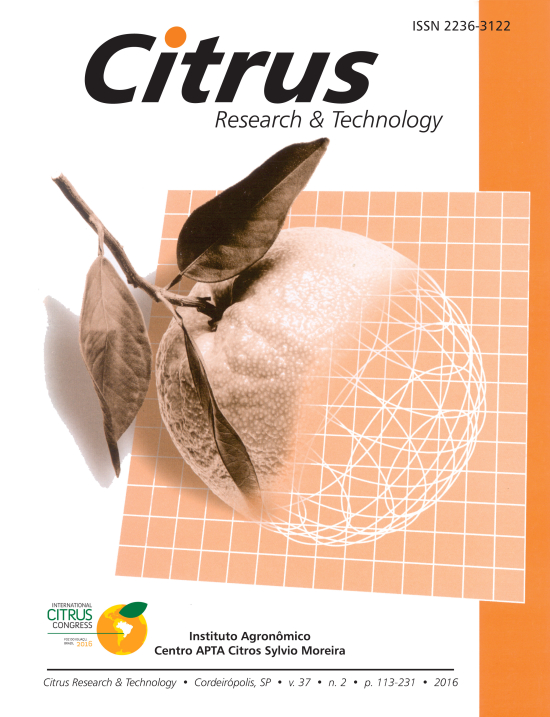Biology and thermal requirements of three leafhoppers vectors of bacterium Xylella fastidiosa
José Maria Milanez, José Roberto Postali Parra, Isabel Aparecida Custódio, Denise Cristina Magri & Christina Cera
Abstract
The biology and thermal requirements of species Dilobopterus costalimai Young, Oncometopia facialis (Signoret) and Acrogonia sp. considered the main vectors of the bacterium Xylella fastidiosa, the casual of Citrus Variegated Chlorosis, were studied under laboratory conditions. Nimphae were reared on a alternate host known as Vernonia condensata, at temperatures 18, 20, 22, 25, 28, 30, and 32ºC and 14-hour photoperiod. The development of the egg stage at a 18-32º C range was inversely correlated with temperature. The values of the temperature threshold (Tt) and thermal constants (K) for D. costalimai, O. facialis and Acrogonia sp. were 13.4, 13.7 and 9.8º C and 146.0, 85.2, and 136.7 degree-days, respectively. The temperature range more favorable to the nymphal development was 20-25ºC, and no development at 30 and 32ºC was observed. The Tt and K values for species D. costalimai, O. facialis and Acrogonia sp. were 12.5, 11.0 and 11.8º C, and 666.6, 761.8 and 714.3 degree-days, respectively. Based on thermal requirements and isotherms of regions in the cities of Limeira, Araraquara, Bebedouro, Barretos and São José do Rio Preto, located in the State of São Paulo, the number of generations of leafhoppers per year may vary from 5 to 7.

